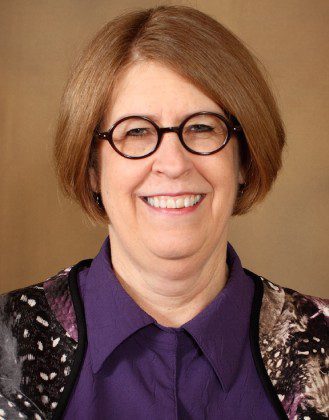
20 Questions with Donna Dean
Favorite color? What makes you happy? What are you good at? What is your greatest fear… “Twenty Questions” is a regular feature in which SCJs and those with whom they minister and collaborate share a bit about themselves in an informal Q&A, each answering 20 questions.
Donna Dean is Executive Director of Corporate Services for St. Joseph’s Indian School in South Dakota (previously she was Human Resources Director). Along with her many years at St. Joe’s, Donna has also been a member of the Province Dehonian Family Committee and has served on the organizational team of several Mission Education Conferences.
Q: Where were you born and raised? Describe your family.

I was born and raised in Vermillion, SD. Lived in East Texas during my “formative” years and loved it! Dad constructed power plants and Mom was a bookkeeper. Being the oldest of four children, I was quite bossy — atrait that I still have today. I have two daughters (both have great husbands) and five brilliant and beautiful grandchildren.
Q: What is your favorite book or movie?
It’s a toss-up between Great Expectations by Charles Dickens and To Kill a Mockingbird by Harper Lee.
Q: If you could travel anywhere in the world (without concern about the expense) where would you go and why?
Denmark and Norway. I’m fortunate to have an aunt very interested in genealogy who has tracked family back for several generations in Scandinavia. I would love to visit places and people with a familial connection.
Q: What are you good at?
Working with numbers and decluttering closets.
Q: What is your favorite color?
Red. Fortunately my husband likes it as well.
Q: Do you have any hobbies or pastimes? If so, what are they and how did you get interested in them?
I’ve been a reader since childhood. One of my favorite memories is going to the Children’s Library in Vermillion. I’m also an avid card player – the result of many hours spent playing games with my siblings and parents.
Q: What is your favorite food?
No brainer – cheese!
Q: What is your least favorite chore?
At home – vacuuming. At work – writing up the notes/minutes from meetings.
Q: Who — living or deceased — do you most admire and why?
My parents. They worked very hard to be good role models for their children. They walked the talk. When I became a parent, those were hard shoes to fill.
Q: What would surprise people to learn about you?
I rode the mechanical bull at Gilley’s – a country and western bar/nightclub in Texas. I managed to stay on – but only because the operator had pity on me and put it on the lowest setting.
Q: What skill or talent would you like to have that you do not? Why?
The ability to carry a tune. I like to sing (with gusto) but only have a range of about three decent notes.
Q: As a child, what did you want to be when you grew up?
A teacher. I loved school. However, I grew to realize that my ability to relate well with children is limited to my daughters and grandkids.
Q: What makes you happy?
Family, friends and quiet. A contradiction I know.
Q: What is your greatest fear?
Being bored.
Q: What trait or habit do you dislike in yourself?
Impatience.
Q: What trait or habit do you dislike in others?
Impatience.
Q: List three words that describe you.
Sense of humor!
Q: How did you come to know of the Priests of the Sacred Heart?
I only learned about the SCJs after I started working in the Human Resources Department at St. Joseph’s Indian School.
Q: What interested you initially when you learned about the SCJs? What interests you about the SCJs now?
The same then as now – Fr. Dehon’s concern about and work for the underprivileged. One small thing that so impressed me about him was his willingness to go out among people. To me that demonstrated humility and love.
Q: Do you consider yourself a Dehonian? If so, what does that mean to you?
Yes, I do. In my work with Human Resources, it means that when we consider a change in the way we do business, we think about the employee who may be impacted negatively by our actions. Is there a way to minimize any adverse action?
For instance, employees are now required to register online for benefits. We identified a core group of staff we felt may have been intimidated by the process. HR staff went to their areas of work and assisted anyone who wanted help with the enrollment.
If HR knows that someone doesn’t have regular access to SJIS email, we provide a paper copy of our message.
These are small examples, but we truly consider what our HR actions will have on those we serve – our employees – and try to put them first.

